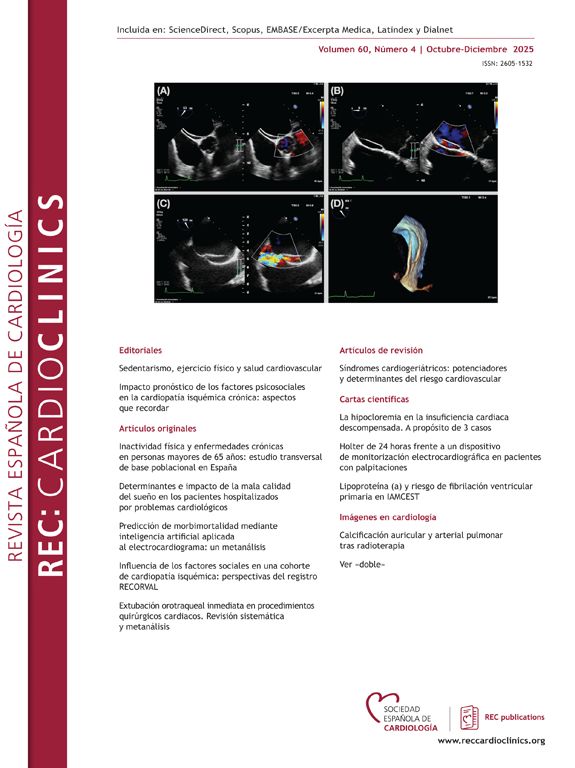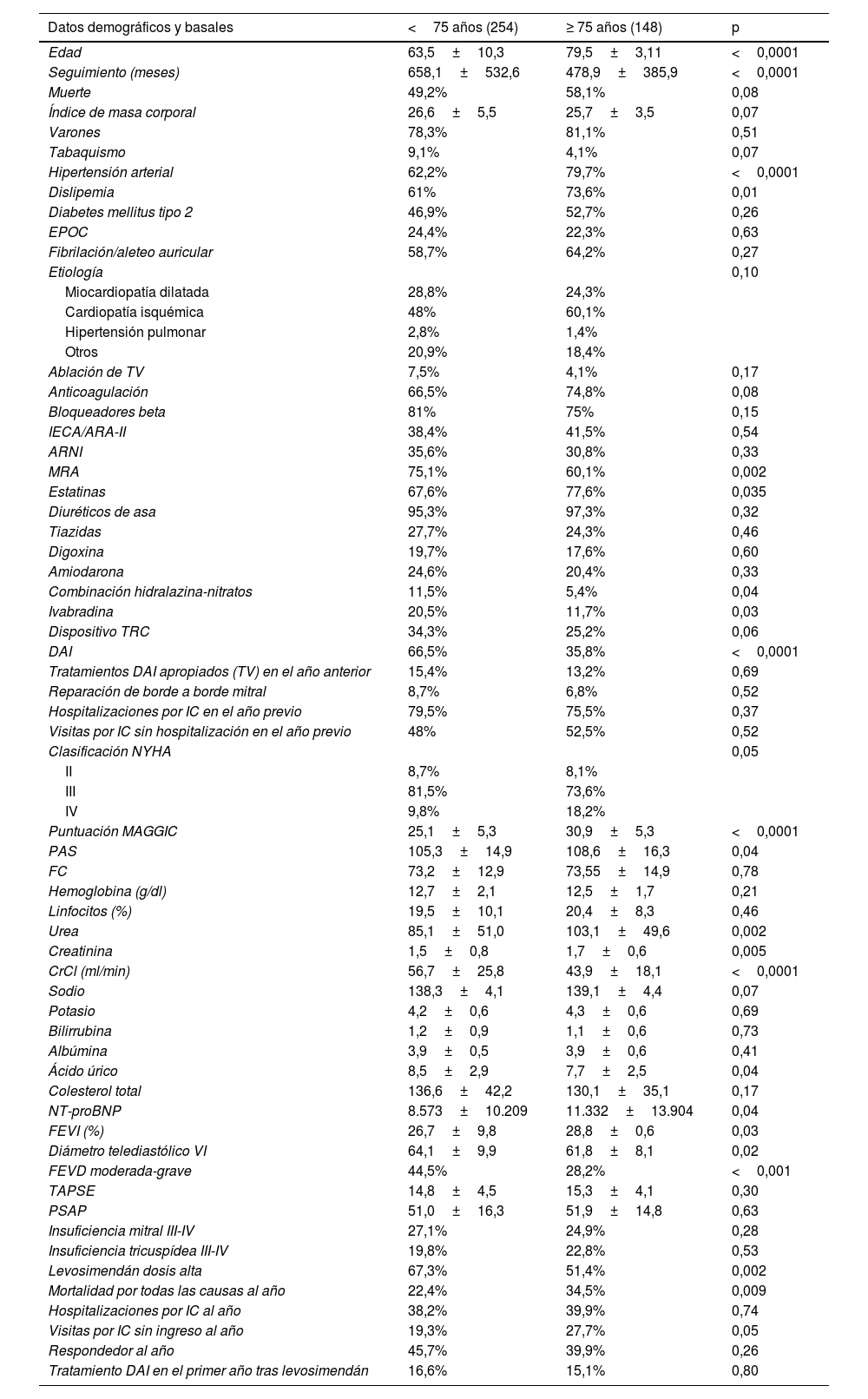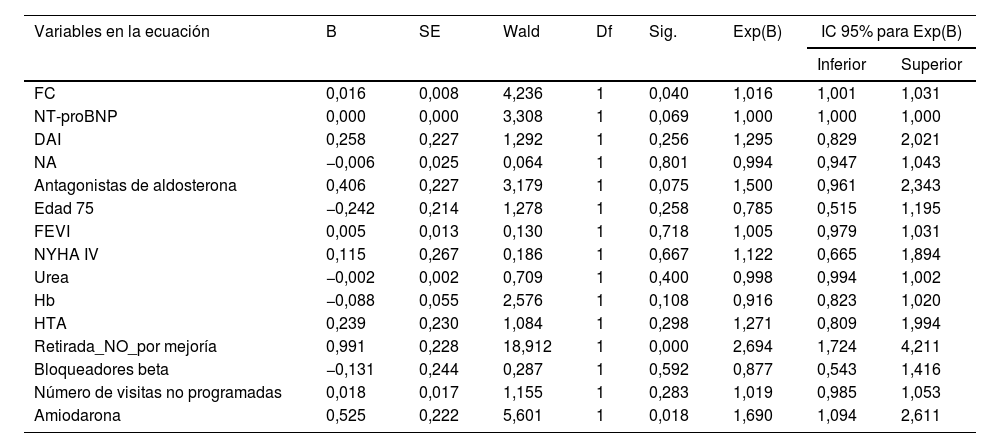Los pacientes ancianos con insuficiencia cardiaca avanzada (ICA) no candidatos a tratamientos avanzados tienen un mal pronóstico. El objetivo de este estudio fue describir patrones de uso y seguridad de la infusión ambulatoria intermitente de levosimendán en pacientes mayores de 75años con ICA como opción de tratamiento comparándolos con pacientes menores de 75años.
MétodosSe realizó un análisis retrospectivo multicéntrico en el que participaron 23 hospitales terciarios (enero de 2015-septiembre de 2020). Se recogieron en total 404 pacientes (37% mayores de 75años y 63% menores de 75años). Los pacientes debían estar bajo tratamiento médico óptimo. Se excluyeron pacientes con insuficiencia cardiaca (IC) de inicio o pacientes sometidos a algún procedimiento que mejorase el pronóstico tras el inicio de levosimendán.
ResultadosMediante un modelo de regresión de Cox se observó que la respuesta al año (definido como ausencia de muerte, ingreso por IC o visita no planificada por IC) no difirió entre los pacientes. La administración de levosimendán tuvo que retirarse con mayor frecuencia en los pacientes mayores de 75años por falta de eficacia y efectos secundarios (40,7% retirado), pero esto no se relacionó con un aumento en los tratamientos del desfibrilador automático implantable 1año antes y 1año después de la administración del medicamento.
ConclusionesEl registro LEVO-D añade información a la escasa evidencia científica sobre el pronóstico actual de pacientes ancianos con ICA y sugiere que el levosimendán es una opción segura que puede reducir los reingresos y visitas urgentes por IC.
Elderly patients with advanced heart failure (AHF) who are not candidates for advanced treatments have a poor prognosis. The objective of this study is to describe patterns of use and safety of intermittent ambulatory infusion of levosimendan in patients older than 75years with AHF as a treatment option, compared to patients younger than 75years.
MethodsA multicenter retrospective analysis was performed involving 23 tertiary hospitals (January 2015-September 2020). A total of 404 patients were enrolled (37% older than 75years and 63% younger than 75years). Patients had to be on optimal medical treatment. Patients with onset heart failure (HF) or patients undergoing any procedure that would improve prognosis after starting levosimendan were excluded.
ResultsA Cox regression model showed that 1-year response (defined as absence of death, HF admission, or unplanned HF visit) did not differ between patients. Levosimendan administration had to be discontinued more frequently in patients older than 75years due to lack of efficacy and side effects (40.7% discontinued), but this was not associated with an increase in implantable cardioverter-defibrillator therapy 1year before and 1year after drug administration.
ConclusionsThe LEVO-D registry adds information to the current limited scientific evidence on the prognosis of elderly patients with AHF and suggests that levosimendan is a safe option that can reduce readmissions and emergency visits for HF.
Article
Use datos de acceso a SEC en el menú Acceder.
Si es socio de la Sociedad Española de Cardiología y no puede acceder con sus claves, escriba a rec@cardioclinics.org.
Use the Society's website login and password here.
If you are member of SEC and you have some problems with your login data, please contact with rec@cardioclinics.org.












